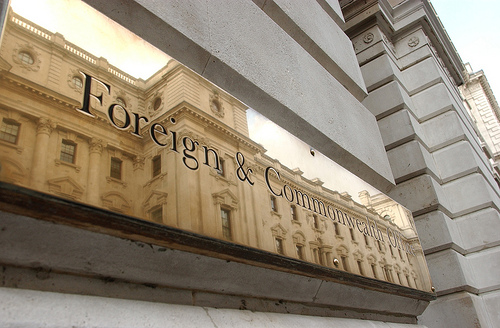25th January 2013 London, UK
Managing the Foreign Office's overseas digital presence

 As organisations have increased their use of digital media in recent years they have had to find ways to manage those channels, finding the right balance between making best use of digital to communicate and engage whilst retaining control over quality, output and branding. For the Foreign Office this has presented even greater challenges: how best to manage the use of digital around the world in different languages and time zones?
As organisations have increased their use of digital media in recent years they have had to find ways to manage those channels, finding the right balance between making best use of digital to communicate and engage whilst retaining control over quality, output and branding. For the Foreign Office this has presented even greater challenges: how best to manage the use of digital around the world in different languages and time zones?
The Foreign Office has, for many years, encouraged its staff to be active online. We have more than 240 overseas websites, in more than 40 languages. Many of our embassies, high commissions and missions are on Facebook, Twitter and Flickr accounts. We also use local social media, for example our embassy in China is active on Sina Weibo which, with around 400million users, is China’s most popular social media. This online presence allows the Foreign Office to communicate and engage with a local audience about UK foreign policy and to reach British nationals especially in the event of a crisis e.g. the Japanese earthquake and tsunami of 2011.
This digital presence is managed from within our diplomatic missions. Any embassy wanting to set up a new digital channel submits a business case to London explaining how it will help them deliver their objectives. Once approved the new channel is set up and run in accordance with Foreign Office branding, style guidelines, and our social media guidance, which my colleague Alison Daniels recently blogged about on the Government Digital Service blog. The embassies are responsible for quality control of their digital presence. They need to ensure online content is relevant and of a high quality, that social media is monitored and queries are responded to promptly and accurately. They are also encouraged to identify ways to use the various tools creatively to reach their audience and engage them on foreign policy issues. We will be capturing some of the best examples of this work on this site.
The role of the digital hubs
To support our staff overseas in their digital work the Foreign Office has four digital hubs around the world: in Washington, supporting our diplomatic missions in North and Latin America plus the Caribbean; in Madrid, supporting Europe; in Singapore, supporting Asia-Pacific missions; and in New Delhi, supporting Africa, South Asia, Central Asia, Russia and the Middle East.
These digital hubs are staffed by locally employed staff, managed centrally from London. They offer training and support to Foreign Office staff on using digital tools, advice on running digital campaigns, and technical support. They encourage peer-to-peer support, helping our staff learn from each other. Being located in their respective regions means they have a good understanding of local issues and are operating on the same time-zones as the staff they are supporting. Improvements in technology allow them to deliver most of their training online saving significant costs.
As major international developments happen at any time of the day it is critical that the Foreign Office is able to respond quickly and is able to update its website and social media channels 24 hours a day. Here the hubs play an important role. The hubs’ locations mean that it is always the working day in at least one hub and so someone is available to update. During any major incident the hubs will monitor online social media activity and report back to London. They are able to access all of our 240+ websites and 300+ social media channels to update them too. This has been important during the Arab spring, New Zealand, Chile and Japan earthquakes, and the ash cloud.
Recruiting locally has meant that the Foreign Office has been able to bring in high quality staff (our current hub staff have backgrounds in programming, journalism, and social media) on long term contracts. Many of the hub team have been with the Foreign Office since the hubs were first created more than five years ago. This experience and knowledge is invaluable.
The hubs have been critical to the success of the Foreign Office’s digital efforts to date. As we prepare for the move to GOV.UK and as we implement the Foreign Office’s ambitious digital strategy their work will remain hugely important.